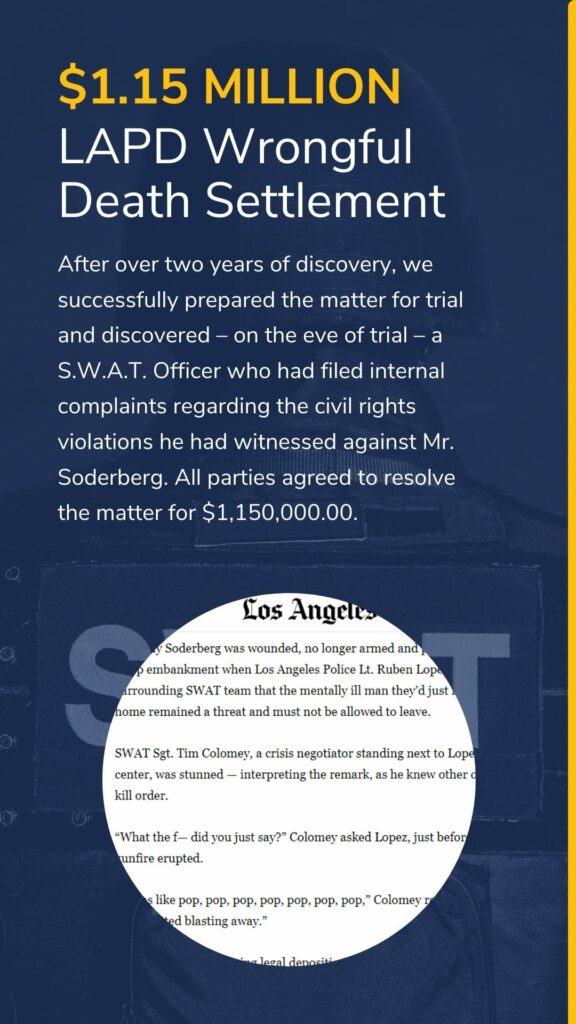Los Angeles' #1 Police Brutality Lawyer










Police Brutality
Police brutality is a specific form of police misconduct that involves the use of excessive and often unnecessary force by law enforcement officers. This behavior can result in physical harm, injury, or death, and it is a serious violation of the rights and safety of individuals. Here are some aspects related to police brutality and compensation for victims:
Excessive Use of Force:
- Physical Violence: Officers using more force than is reasonably necessary, often resulting in severe injury or death.
- Use of Weapons: Inappropriate use of weapons, such as firearms, batons, tasers, or pepper spray.
Unjustified Shootings:
- The use of firearms without proper justification, posing an immediate threat to the officer or others.
Chokeholds and Strangulation:
- The use of chokeholds or strangulation methods, which can be deadly and have led to high-profile cases.
Failure to Intervene:
- When other officers fail to intervene or stop excessive force being used by a fellow officer.
Retaliation:
- Using force or threats against individuals who exercise their rights or report misconduct.

Police Brutality Near You With Actual Wins Against Law Enforcement
Police brutality is a specific form of police misconduct that involves the use of excessive and often unnecessary force by law enforcement officers. This behavior can result in physical harm, injury, or death, and it is a serious violation of the rights and safety of individuals. Here are some aspects related to police brutality and compensation for victims.
Compensation for Victims:
Civil Lawsuits:
- Victims or their families can file civil lawsuits seeking compensation for damages, including medical expenses, pain and suffering, and loss of income.
Criminal Charges:
- In cases of severe brutality, criminal charges may be brought against the officers involved. If convicted, officers may face imprisonment, fines, or other penalties.
Police Department Accountability:
- Internal affairs investigations within the police department may lead to disciplinary action against the officers involved.
Public Awareness and Advocacy:
- High-profile cases often lead to public awareness, protests, and advocacy for police reform, which may contribute to systemic changes.
Body Cameras and Evidence:
- The use of body cameras and other evidence can play a crucial role in establishing the facts of the incident and holding officers accountable.
Community Oversight Boards:
- Some jurisdictions have established independent community oversight boards to review cases of police misconduct, including brutality.
Policy Reforms:
- Advocacy for changes in police policies, training, and procedures to prevent and address issues of brutality.
It’s important to recognize that addressing police brutality involves a combination of legal, social, and systemic changes. Efforts are ongoing in many places to improve accountability, transparency, and community relations within law enforcement agencies.




